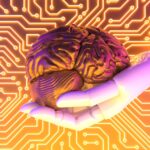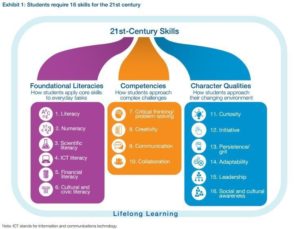
Choosing the best LMS for your Business
24 July 2017
The Difference Between AI, Machine Learning and Deep Learning
7 August 2017If you are a part of the IT, and technology industry, you have certainly heard the term “Exponential Technology,” but what exactly is it?
Well, let’s unpack the term itself. This clearly refers to technology that is “exponential,” meaning technology that is becoming more and more rapid. Exponential Technology refers to technology that is continually doubling in capability and performance. This kind of technology also decreases in cost as it progresses.
An example of Exponential Technology that we are all familiar with is computers. Other Exponential Technologies include: drones, Artificial Intelligence, robotics and smart phones. These technologies have been around for years, in some cases decades. And as these technologies progress, they become more affordable, making these tools cost-effective for businesses. Essentially, these technologies can now play a role in solving today’s business issues.
The same can be said for Exponential Technology in learning.
Exponential Technology meets Learning and Development
Technology is evolving so rapidly that it is becoming hard to keep up! Due to this ever-advancing technology, the job market we are currently preparing our learners for, will look completely different by the time they actually graduate.
To put this into perspective, The US Department of Labour has stated that “65% of today’s grade school kids will end up at jobs that haven’t been invented yet.”
For education, this indicates a need for a massive shift from traditional learning.
So, how can we keep students up to date with the ever-evolving job market?
There are a set of 21st Century skills that have been identified and these skills need to be nurtured through education.
These have been broken down into 3 categories:

-
Foundational Literacies
Learners need to have foundational knowledge of the basics, being: reading, writing, math, science, and the arts.
-
Competencies
Often referred to as the four C’s, competencies are: critical thinking, communication, creativity, and collaboration. These four competencies are what computers do best! You see, Artificial Intelligence is no longer science fiction. With this in mind, learners need to nurture these competencies to prevent their jobs from becoming completely computer automated.
-
Character Qualities
For these 21st century skills to be effective, learners need to have certain character qualities. These include: the ability to adapt, a curious mind, and an aptitude for leadership. These qualities will help learners become active creators of their own careers and lives, finding and pursuing what is meaningful to them. Character training is quickly becoming key to successful education!


